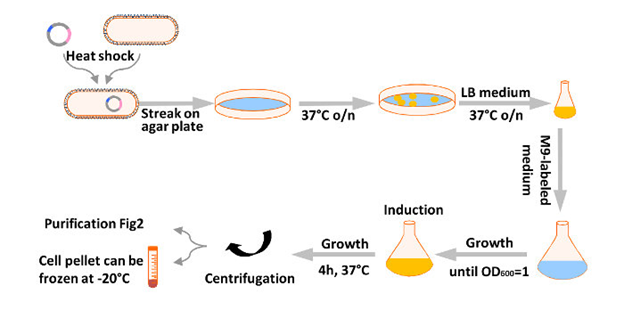One primary product of thebiotek.com is recombinant proteins. Recombinant proteins are proteins that are manipulated. They can also be defined as proteins that are encoded with a gene known as a recombinant DNA. Recombinant DNA is a molecule that is manufactured in the laboratory. The molecule is formed by methods of genetic recombination, which brings together genetic components from several sources. In other words, it is a cloned DNA. Therefore, recombinant DNA can be used to modify gene sequences, massive amounts of proteins, and the manufacture of useful commercial products. In this post, we discuss the production and applications of recombinant proteins.
Production of Recombinant Proteins
There are two ways of producing recombinant proteins;

- Molecular Cloning
Molecular cloning refers to a process through which recombinant DNA is inserted into a vector. A vector, on the other hand, is a vehicle like component that is used to transfer genetic materials. Once the recombinant DNA is inserted into the vehicle, it replicates the segment inside the particular host. The next step of the process is the isolation of the DNA segment. Once this has been achieved, the portion is cut using a restriction enzyme and inserted into a different kind of vector known as a plasmid vector in a process called ligation. The final product is called a recombinant plasmid. The product is then inserted into a host. As the DNA continues to replicate, the plasmid DNA also continues to reproduce.
- Polymerase Chain Reaction
A Polymerase Chain Reaction is also known as Molecular Photocopying. It is a process through which segments of DNA are amplified into a million copies. Once the prints are produced, they are used in various laboratories to perform experiments like mapping. This mode of production does not require the use of a vector or a cell that acts as a host. This method only needs a DNA to be mixed with a forward and reverse primer, a nucleotide as well as a polymerase. The cycle continues over and over.

Applications of Recombinant proteins
In medicine
In the healthcare industry, recombinant proteins are used as therapeutic proteins used in various essential therapies for a variety of diseases. Such diseases include cancer, diabetes, cancer, multiple types of infectious diseases, and anemia, to name a few. These proteins can also be used as vaccines and diagnostics.
In research
In the research industry, recombinant proteins are used to identify the location of proteins that are gene-coded and to identify the functions of the said genes in different cellular activities. Such activities include cell signaling, metabolism, replication, and growth, to mention a few. These functions are useful in research in the fields of biology (molecular and cell), chemistry and biophysical sciences, and studies.
In biochemistry
Recombinant proteins are used in the production of food, agriculture, and bioengineering. For instance, recombinant proteins can be used in animal feeds to increase their nutritional value.

Take Away
Recombinant proteins had made waves in the biomedical industry since 1982, when recombinant human insulin was applied in medical treatment. The applications of the product continue to increase by the day.
























